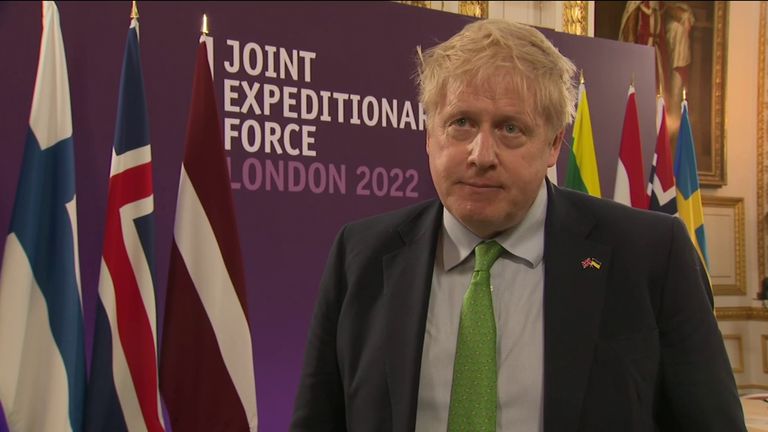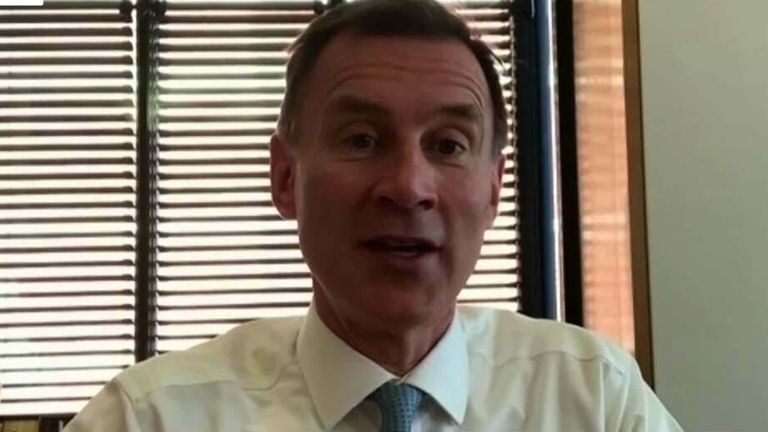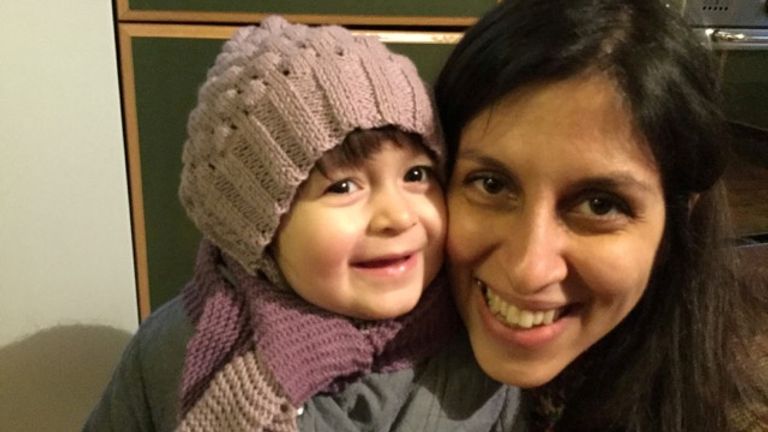Boris Johnson has said he does not want to “tempt fate” by commenting on negotiations currently taking place to secure the freedom of Nazanin Zaghari-Ratcliffe.
The prime minister confirmed on Tuesday that “conversations are still going on” to secure the release of the British-Iranian mother.
She was first arrested by Iranian authorities six years ago on accusations she had been conspiring against the country’s government – charges she has always denied.
Hopes are now growing that her release could be imminent after Mrs Zaghari-Ratcliffe’s MP – Tulip Siddiq – claimed in a social media post that her passport had been returned and that a British negotiating team were in Tehran.
What is being negotiated?
There has not been any official account of the nature of negotiations taking place, which are understood to also relate to other consular cases involving dual British-Iranian nationals.
However, earlier this year, the PM did not deny there were efforts to strike a deal that would see the UK government settle an historical debt dispute with Iran.
During PMQs on 9 February, Ms Siddiq said she understood a deal signed between the UK government and the Iranian authorities in the summer of 2021 “that would have resulted in the payment of the £400m that we owe Iran and the release of my constituent Nazanin Zaghari-Ratcliffe” had fallen through.
She urged the PM to personally meet her and Mrs Zaghari-Ratcliffe’s husband, Richard Ratcliffe, to explain why the agreement had broken down.
Mr Johnson responded: “The International Military Services, or IMS, debt is difficult to settle and square away for all sorts of reasons to do with sanctions.
“But we will continue to work on it and I will certainly make sure that we have another meeting with Richard Ratcliffe in due course.”
What is the IMS debt?
Following the 1979 Islamic revolution in Iran, the British government cancelled an order for 1,500 Chieftain tanks and armoured vehicles.
The order was being handled by what was then the Ministry of Defence’s arms-trading subsidiary – International Military Services.
The order had already been paid for when it was cancelled. The debt owed following the non-delivery of the tanks is estimated at £400m.
Last November, Foreign Office minister James Cleverley told MPs the government accepts liability for the debt, but said settling the matter was “not easy” due to sanctions imposed on Iran.
“The UK government recognise that we have a duty to legally repay this debt and we continue to explore all legal options to resolve this 40-year-old case,” he said in the House of Commons.
But he added: “We do not accept British dual nationals being used as diplomatic leverage.”
A High Court hearing on the question of the IMS debt repayment had been scheduled for April 2021 but was adjourned at the request of the Iranian defence ministry. A new hearing date has yet to be set.
Mr Ratcliffe has previously accused the government of being “too timid” in its negotiations with Iran, and recently went on hunger strike to put pressure on ministers to go further to secure his wife’s release.
Is there any connection to the Iran nuclear deal negotiations?
Since his election, US President Joe Biden has been working to re-establish the Iran nuclear deal, which his predecessor Donald Trump abandoned in 2018.
Those talks have increased in intensity in recent months, with reports the US could be close to rejoining the agreement – despite complications caused by Russia’s invasion of Ukraine.
The deal, known as the Joint Comprehensive Plan of Action (JCPOA), aims to ease sanctions on Iran in return for limits being put on Tehran’s nuclear programme.
It was signed by the US, UK, China, France, Germany, Russia, the EU and Iran in 2015.
Last summer, Iran’s main negotiator accused Western countries of delaying talks around prisoners to force Iran into JCPOA negotiations before a new government was in place.
Both the US administration and UK government have repeatedly insisted there is no connection between the efforts to negotiate the release of dual national prisoners and the nuclear talks.
However, following the JCPOA’s initial implementation in 2016, Barack Obama’s administration did secure the release of four American prisoners from Iran.




